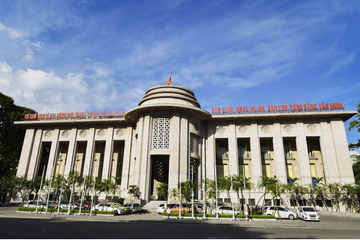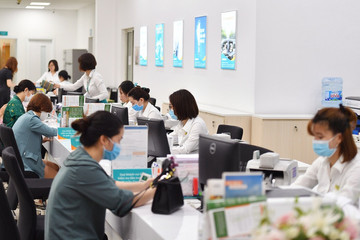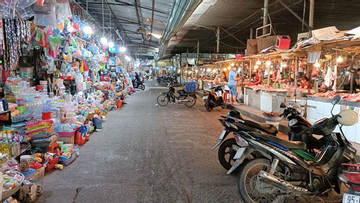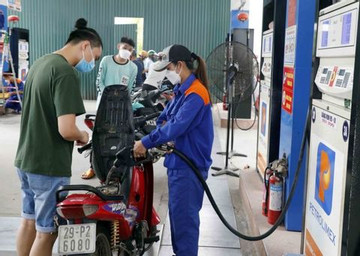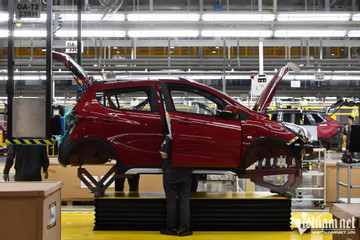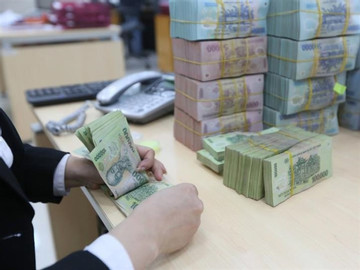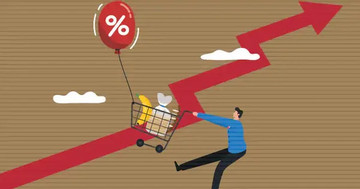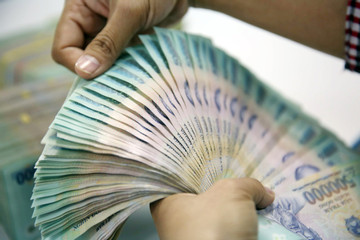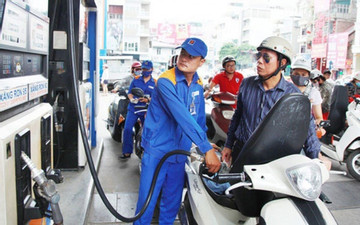- © Copyright of Vietnamnet Global.
- Tel: 024 3772 7988 Fax: (024) 37722734
- Email: evnn@vietnamnet.vn
Inflation
Update news Inflation
Investors cautious about disbursing investments amid higher rates: experts
As many major central banks tightened monetary policies to contain soaring inflation, the State Bank of Vietnam (SBV) on September 22 also decided to hike its benchmark interest rate by 100 basis points, effective September 23.
USD reaches high price, currencies depreciate to record low
The forex market has seen heavy fluctuations amid a tense situation as the US has raised interest rates as well as other central banks. The high prices of USD have affected the Vietnamese dong.
Credit room extension given, but capital released in dribs and drabs
The State Bank of Vietnam (SBV) has given credit room extension to some commercial banks, paving the way for more money to be pumped into the economy. But capital is being released in dribs and drabs.
High prices trouble people and businesses
Though the consumption and use of services have increased compared to the peak of the COVID-19 pandemic, consumer demand is still low while commodity prices have reached a new height.
Inflation pressure eases on fuel price cuts
The inflation pressure eased significantly in August on Government efforts to bring down petrol prices although prices of other goods and services kept increasing, according to the General Statistics Office.
Global inflation poses challenges to Vietnam's exports
Inflation in many developed economies has led to a sharp decline in the demand for many of Vietnam’s export products.
Market prices stay high despite sharp falls in petrol prices
The nation has seen food prices remain stubbornly high despite the recent sharp decline in gasoline prices.
Vietnam vows to keep inflation below 4%
Despite difficulties, the government has been striving for a GDP growth rate of 7 percent, an inflation rate of below 4 percent and a credit growth rate of 14 percent this year.
Chances await, but solutions to difficulties needed to maximise EVFTA
After two years of enforcement, the EU - Vietnam Free Trade Agreement (EVFTA) has generated initial results, but rising inflation in the EU and the euro depreciation are affecting Vietnamese firms, requiring urgent solutions to those difficulties.
Lending rates expected to be stable thanks to State support package
Lending interest rates in the remaining months of this year will stay relatively stable to help firms recover production after the pandemic.
State Bank of Vietnam faces pressure on exchange rate
The State Bank of Vietnam is facing multiple pressures in 2022 in managing the foreign exchange rate
Rising inflation will slow economic recovery
Although global inflation is a reality, the general feeling is that inflation is still under control. However, continued rising inflation is bound to affect the efforts of the Government to make full economic recovery.
Finance ministry proposes further lowering MFN tariff on gasoline
The Ministry of Finance again proposed the Government lower the MFN tariff on unleaded gasoline to 10% from 20%, instead of 12% as earlier suggested, apart from efforts to cut the environmental protection tax on fuels to the floor level.
Cutting taxes on petrol products is more urgent than ever
“VND50,000 please. No, just VND30,000." “VND100,000, please. No, only VND70,000." These were conversations I heard yesterday at a filling station.
Vietnam’s CPI up 2.44% in six months
Vietnam’s consumer price index (CPI) in the January – June period rose by 2.44% year-on-year while its core inflation edged up 1.25%, the General Statistics Office (GSO) reported at a press conference on June 29.
An unprecedented economic crisis and its possible impact on Vietnam
The economic crisis caused by the Covid-19 pandemic has been followed by the economic crisis associated with the Russia-Ukraine conflict.
The risk of surging deposit rates
In addition to the risk of bad debts owed by Covid-hit customers, the rise of deposit interest rates rapidly rising is seen as the main risk for the banking system now and in the future.
“Price storm” forces workers to tighten their belts
The petrol price hike has led to price escalations of major goods and services, forcing low-income earners to tighten their belts.
Curbing inflation: large ‘dose of medicine’ may cause after-effects
If inflation cannot be controlled and Vietnam has to use a “high-dose drug”, such as an interest rate increase, serious consequences may occur.
Rising petrol prices challenge inflation control efforts
The goal of maintaining inflation at 4% this year will be threatened unless viable solutions are introduced in a bid to rein in rapidly-increasing petrol prices, according to economic experts.

